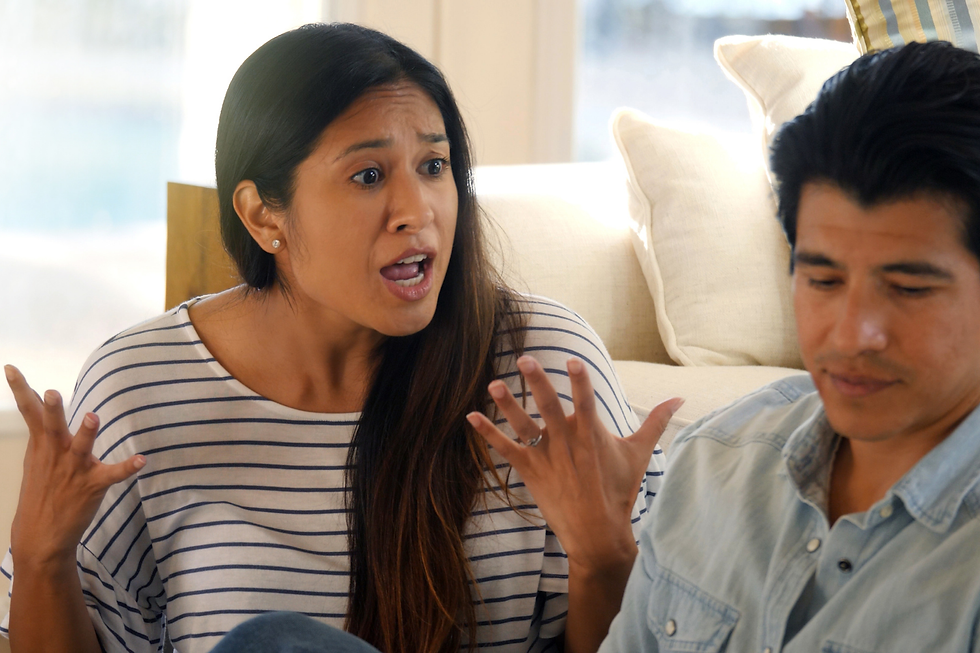They Hurt You...Then Act Like Nothing Happened – The Dismissive Avoidant Reality
- Samara Knight

- Jul 4
- 4 min read
Updated: Jul 13

There’s a special kind of heartbreak that comes when someone hurts you... then acts like they didn’t. No apology. No acknowledgment. Just cold silence or casual small talk like everything is fine.
If you’ve ever loved someone who behaves this way, you know exactly what I mean.
My ex-husband was this way. He still is.
At first, it crushed me. The emotional disconnect. The lack of repair. It made me question myself constantly. Was I too sensitive? Did I make it all up? Was I imagining the pain?
Now I know: I wasn’t. And neither are you.
This isn’t about being dramatic or needy. This is about being in a relationship with someone who is dismissive avoidant – a person who’s emotionally unavailable not because they don’t care, but because they literally don’t know how to process closeness or conflict.
Let’s talk about what that looks like, how to recognize it, how to avoid getting trapped in it, and how to break free if you already are.
What is a Dismissive Avoidant?
A dismissive avoidant is someone who:
Shuts down when things get emotionally intense
Sees emotional vulnerability as weakness or a threat
Acts unaffected after hurting you
Brushes off serious conversations or flips the script
Believing independence is more important than intimacy
They learned early in life – through emotional neglect, conditional love, or chaotic parenting – that feelings weren’t safe. So as adults, they protect themselves by detaching.
To them, ignoring a problem is solving it.

How to Know If Someone Is Dismissive Avoidant
Here are some signs:
They act distant or distracted after conflict
They avoid emotional conversations like the plague
They rarely apologize or take accountability
They make you feel like the “emotional one”
They seem calm after a blow-up, while you feel shattered
They say things like “I don’t want to argue” and walk away… then never revisit it
If you’ve ever felt like you’re the only one hurting in a relationship while they carry on like nothing happened, this might be what you’re dealing with.
If You're in a Relationship with One
First, I want you to hear this clearly:
You are not too much. Your needs are not a burden. Wanting emotional repair is normal.
Here’s what you can do:
Stop trying to earn their empathy. You can’t love someone into emotional maturity.
Don’t explain your pain over and over. If they wanted to understand, they would try.
Set emotional boundaries. Silence after hurting you is not okay.
Stop accepting “normal” behavior from someone who just hurt you. It’s not normal, you are hurting or hurt.
Pause the chase. Let them feel the consequences of emotional avoidance, however that may look for you....within the law, of course!
Seek therapy or support. You don’t have to process this pain alone, talk to someone you know and trust and if you have no one, talk to a counselor or therapist if possible.
Most importantly, stop shrinking yourself to keep the peace within the relationship. What you're doing is not peace – it’s self-abandonment.

If You Want to Avoid a Dismissive Avoidant
Here’s how you can spot the red flags before getting too deep:
Watch how they respond to emotional moments – are they present or uncomfortable?
See if they avoid hard conversations or minimize your feelings
Ask about their past – do they speak of close relationships or stay vague?
Notice if they avoid talking about conflict resolution or change the subject
Pay attention to how they deal with their own emotions – do they stuff it down or face it?
If you feel invisible after expressing your needs, take that as a sign.
Hard Truth: You Can’t Fix Them
You can’t teach someone how to be emotionally available if they’re not willing to learn.
You can’t beg someone to care. You can’t heal by staying in the same place that hurts you.
They might come back acting sweet. Flirty. Like nothing ever happened. But that’s not repair. That’s avoidance.
If you accept it, you’re unintentionally saying, “You can hurt me, and I’ll still be here.”
And that is how the cycle repeats.
Here’s What You Deserve
A relationship where your pain is acknowledged
A partner who can sit in discomfort with you and not run
Apologies that aren’t forced, but heartfelt
Emotional safety – not silence

Healing doesn’t come from finally being seen by them.
Healing comes from you finally seeing yourself and deciding that your peace is worth protecting.
I’ve been there. I stayed too long. I stayed quiet. I thought if I could just be more patient, more loving, more calm... he would change.
He didn’t. And now? I would never accept emotional neglect from anyone – not family, not friends, not coworkers, and definitely not in a relationship.
If this post speaks to you, I want you to know you're not alone and you are not the only person that has taken this journey.
Let’s talk. Have you ever loved a dismissive avoidant? What helped you break the cycle or gain clarity?
Your story could help someone else feel less alone. Share below.











Comments